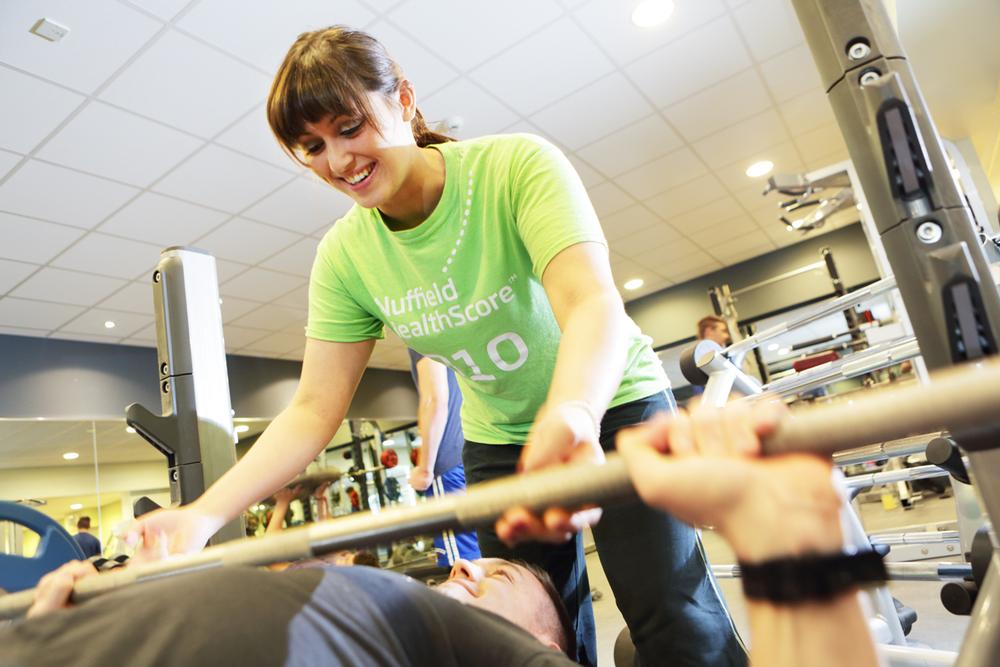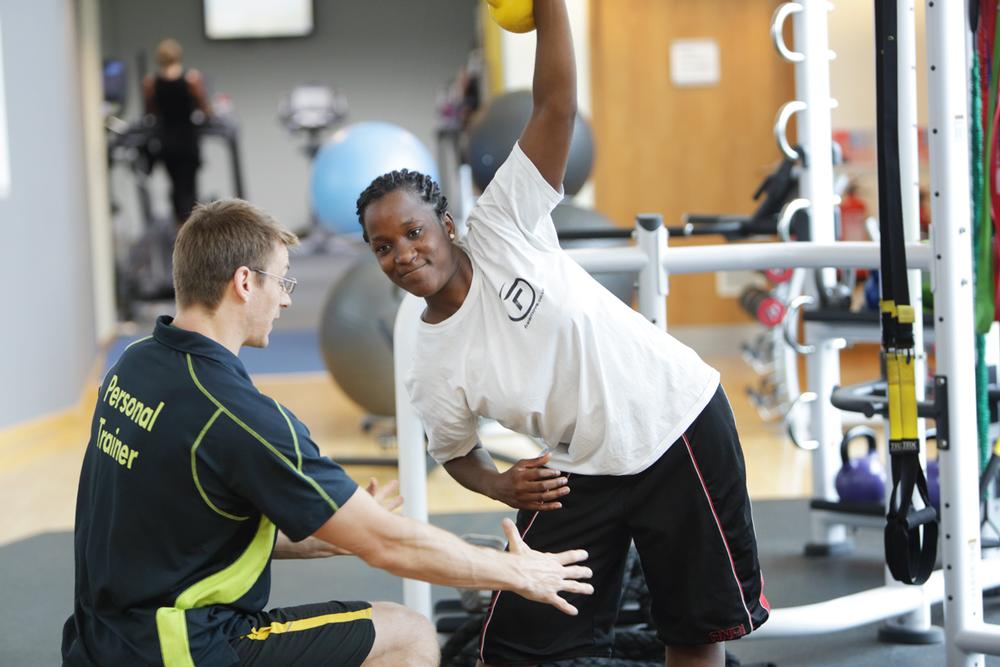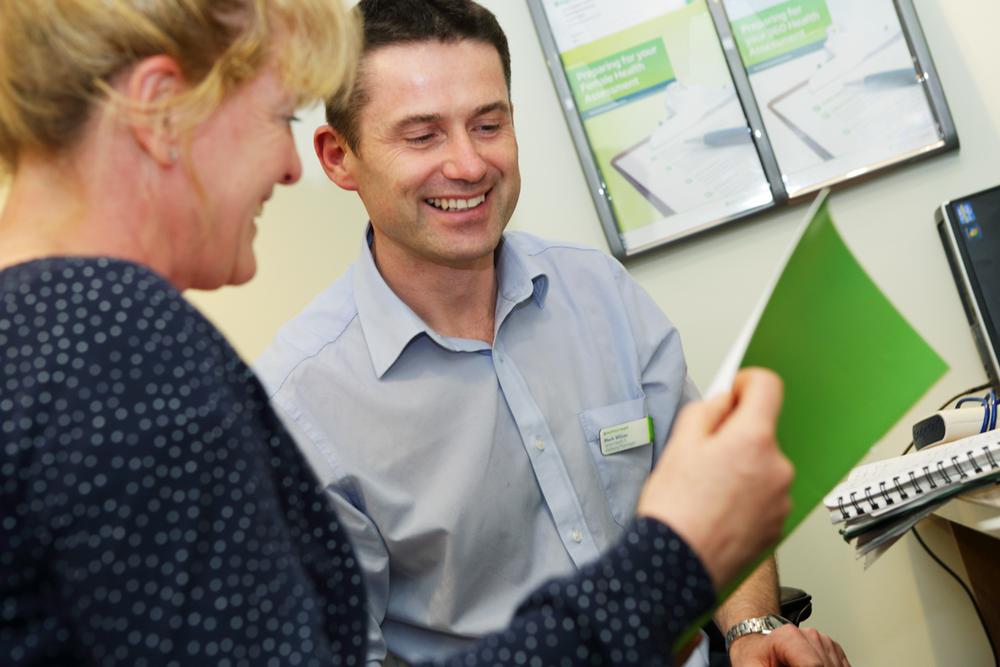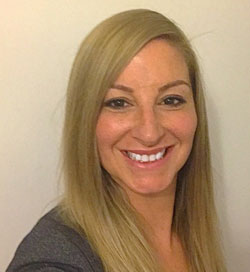As a provider of corporate wellness services to around 1,600 major companies – including half of the FTSE 100 and 40 per cent of the FTSE 250 – Nuffield Health has been making huge strides in the corporate market over the past five years.
And that impressive reach is about to get even broader with the recent announcement of a deal with UK supermarket giant Tesco to provide corporate health assessments for its senior managers nationwide.
Dr Andrew Jones (below left), until recently managing director of Nuffield’s corporate wellbeing division and now head of the newly merged corporate and consumer wellbeing services, is clearly upbeat about the implications of the Tesco deal and the rapid growth of Nuffield’s corporate services generally.
He says: “The partnership with Tesco is very exciting. It’s one of the most successful and famous UK retailers, and we’ve been in conversation with them for the past 12 months about creating a health and wellbeing blueprint for their workforce. It represents a major undertaking by both Tesco and us.”
Jones is currently tied by client confidentiality about the finer details of the scheme, but he can tell us that the management health assessments have been in operation since April, and Nuffield has also built a medical centre at Tesco’s HQ in Cheshunt, Hertfordshire.
The centre is a suite of rooms, which will be in addition to the 50 other Nuffield facilities around the country where Tesco staff will be able to access both general health and fitness services, as well as more targeted healthcare offers like physiotherapy.
Jones adds: “We’re working very closely with Tesco on many different areas to help get their workforce fit, motivated and healthy.”
INTERNAL MERGER
Jones, a GP by training, joined Nuffield in 2007 as group medical director, undertaking a variety of roles within the company before being appointed MD of corporate wellbeing in 2011.
Since December 2013, his newly expanded role involves overseeing both the corporate and consumer divisions of Nuffield, which includes the running of 200 on-site wellbeing facilities on the corporate side – with 45 of those having opened in the past two and a half years – and 65 health and fitness facilities on the consumer side, 15 of which were acquired from Greens Health Clubs in 2011.
So why has Nuffield decided to merge the two divisions, and what benefits will that bring? Jones says: “Our corporate business has been growing fast and we’ve come to a point where we need national points of distribution so, if we take on a big new client, their employees can get the most benefit by being able to access all points in the Nuffield chain, whether that’s general health and fitness or specialist healthcare services.
“It made sense to integrate the business to maximise those benefits and achieve those synergies. Also, we did it to accelerate the next stage of our development, and push forward with new ideas for our health and wellbeing services in both markets.
“We’re looking to develop occupational health and emotional resilience services and look after Nuffield patients with full rehab fitness programmes once they’ve completed their surgery.”
TRACKING WELLBEING
Nuffield, a registered charity since its inception in 1957, is not an organisation to rest on its laurels or simply follow current trends. The products it has more recently launched – like the wellbeing package memberships into the consumer market, and its all-new health assessments targeting the corporate market – position it ever more strongly as a leader in the field of wellbeing and prevention.
“We’re calling it the new Nuffield paradigm. Over the past eight years, we’ve gradually focused a third of our business in the areas of prevention and wellbeing,” says Jones.
The new and improved Nuffield Health health assessment for businesses was rolled out last month and is being supported by a new digital e-health platform to make the service more accessible. Jones explains: “We’ve worked for two years to create one of biggest shifts in the health assessment arena. These products have always represented an in-depth assessment, but only at one point in time. Now Nuffield is shifting from one-off assessments to creating a package of care for an individual’s ongoing needs.”
Under its new slogan of ‘With you for the journey’, Jones says the new assessments will be used to form packages that might now engage the individual for one to two years, depending on their needs. They may, for example, need support with training for a marathon, or have ongoing joint problems that need managing.
The digital platform will have a new online booking portal to facilitate connections with Nuffield advisors and experts. Alongside this is the Nuffield HealthScore app – a clinically validated online and mobile fitness and lifestyle tool that combines expert knowledge about fitness and wellbeing with the latest smart technology. With it, employees can monitor their health and progress anytime, anywhere. HealthScore considers all aspects of an individual’s health and tracks their progress in real time via smartphone, tablet, desktop or laptop.
“Nuffield HealthScore allows the user to do all sorts of fun things to track their health and wellbeing,” says Jones. “Users can access it from any mobile device, and there’s a dynamic health score of 1,000 which can go up or down each day depending on their input.”
There’s an exercise tracker that links into the GPS on the user’s phone to track daily activities such as walking, yoga and gardening, as well as a nutrition coach that gives prompts about healthy eating based on the Mediterranean diet. The platform can even link directly to blood pressure or heart rate monitors to take real-time data.
Jones adds: “We’ll be measuring both sleep and stress levels – stress being one of the fastest growing areas of attention in corporate wellbeing. From our medical expertise, we know heart rate variability is an important indicator of stress, and we can measure that using heart rate monitors and translate the data more easily and directly through the platform.”
The Nuffield HealthScore is an integral part of the new corporate offer, but has also been made available in half of Nuffield’s consumer health and fitness clubs – either bought as an add-on or offered as part of the wellness package – with the rollout to the full estate due to be completed by September 2014.
However, Jones is keen to add: “I don’t think simply adding digital products works in itself. You have to integrate them into user journey and ensure they add value to everything else you’re doing, making sure it’s totally joined-up.
“People still place a high value on face-to-face interactions with our health specialists. That said, I’d say currently three in 10 of our customers like to engage with online platforms, and that figure is growing all the time.”
HEALTH MOTs
While his recent focus has been on the corporate market, Jones is equally enthusiastic about Nuffield’s developments in the consumer arena.
Everyone who joins a Nuffield health club is entitled to a free Health MOT – a 12-point health assessment that looks at key indicators and risk factors like blood pressure, cholesterol, blood glucose, etc. This is then used to create a personalised assessment, which can help the member make decisions about what kind of health and fitness programme they wish to follow.
Jones says the uptake of the MOTs – launched in 2012 – is extremely high, with over 100,000 tests, both initial and follow-ups, being undertaken across its consumer estate each year.
With its push further into prevention and wellbeing, Nuffield also launched its Wellbeing Package in the summer of 2013, and Jones says the charity recently signed up its 5,000th wellbeing member: “It’s been so successful that we’ve had to accelerate the rollout. It’s currently offered in just over half of our clubs and will be offered in all of them in 2015.”
For an upgraded, tiered membership (£60–£90 a month, compared to around £50 for the standard membership), wellness members are assigned their own health mentor who they speak to regularly, and receive more joined-up access to specialist services – the most popular being physiotherapy, nutrition consultations and PT.
“Seven out of 10 people who now join us sign up for a 12-month membership. They know we’re not just selling them a package, but that we genuinely want to address their particular health needs, like sorting out their bad back or helping them manage their diabetes,” says Jones.
COMMUNITY FOCUS
Nuffield is the largest trading charity in the UK, with a turnover of £700m a year and any operating surplus – currently around £80m a year – reinvested into new or expanding areas of the business.
As a charity, its community-focused work – which was accelerated in 2012 – is important, including putting better health and fitness facilities into schools, universities and colleges and running them as dual-use sites (it currently has 20 such facilities, with a further seven openings planned for 2014).
Perhaps a lesser know area of Nuffield’s work is with the MoD, where for the past three years it’s delivered the Standard Nuffield Army Assessment – a fitness test for would-be recruits. Around 60,000–70,000 applicants are screened each year, with results fed back to the MoD’s recruitment teams.
In addition, Nuffield runs the health and fitness facility at the Catterick Garrison in North Yorkshire, and Jones says the charity is in talks with the MoD about providing services to other parts of the armed forces. While Jones sees this as valuable work in a key public sector area, it’s clearly a very steady and healthy revenue stream for Nuffield too, with the potential to become much bigger.
Within the medical arena (Nuffield owns and runs 31 hospitals around the UK), Nuffield works with cystic fibrosis sufferers in conjunction with Great Ormond Street Hospital in London and Leeds General Infirmary. It also it takes part in a number of health pilots, with its current Neurofit programme offering strength training and physiotherapy-led classes for those with multiple sclerosis in Warwick, Newbury and Reading.
MEDICAL POTENTIAL
As a former GP who’s now professionally involved with health and wellbeing, does Jones see many opportunities for greater links between the fitness and medical sectors?
He says: “As a doctor, I know that exercise can play a positive part in just about every medical condition I’ve ever come across. It’s good if you’ve got heart disease or had a heart attack, for high blood pressure or if you’ve had a stroke, if you have lung disease or asthma. If you have arthritis, it’s good for maintaining muscle strength to protect your joints, it improves the quality of life for those with neuromotor conditions, and it’s one of the few things that can improve anxiety and depression. It also reduces your chances of getting cancer, and can help with recovery if you do get it.
“The approach of the NHS is still ‘one size fits all’, but those days have totally gone – people want personalised advice, to take part in their own healthcare, to know more about prevention, and to be given the information so they can make a choice. That’s very much at the core of what we’re trying to do at Nuffield.”
However, overall Jones finds progress in the joining up of fitness and medicine to have been “absolutely glacial”, with programmes like GP referrals “not really working at all”. Neither was he surprised when physical activity was withdrawn from the QOF (see HCM Jan 14, p5).
DRIVING PARTICIPATION
But with the establishment of the Health and Wellbeing Boards, does Jones see health, fitness and wellbeing services eventually being more joined-up within government strategies?
“Working with councils, engaging with exercise referrals, diabetes care, older care and obesity – all this could be huge, but progress is still very slow. Maybe as an industry we haven’t done enough yet, but I don’t think it’s something governments can solve on their own either.
“Wellbeing needs to be an area of innovation and opened up to a whole range of different providers, businesses and charities that can bring new solutions; the best of those ideas will succeed.”
For the long term, Nuffield is “placing its bets” on prevention and wellbeing offers in both corporate and consumer markets, with the former taking the lead.
“Today’s employers absolutely get it. Every day we have conversations with people who want to help their workforce get healthier, fitter, more motivated, more productive and more engaged.
“The industry talks about static penetration rates of 12 per cent, but it’s certainly not what we see in our corporate schemes, where take-up is far higher. Around 40 to 60 per cent of employees in the estate sign up and engage in some form of activity.
“We’d love that kind of enthusiasm and engagement to spread across the general community.”




























































